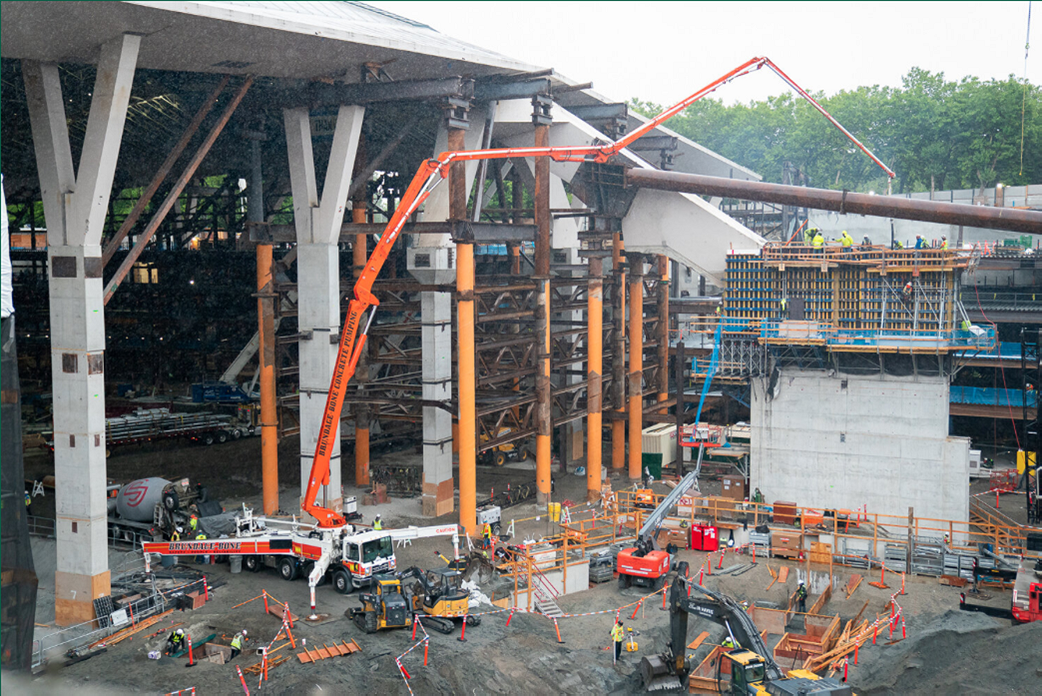Venue Sustainability: Climate Pledge Arena’s Plan: Carbon Neutral, All Electric
Venue Sustainability
Climate Pledge Arena’s Plan: Carbon Neutral, All Electric
Climate Pledge Arena, scheduled to open next year as the home of the NHL expansion team the Seattle Kraken, has a name and a pledge to live up to. In this case, it’s building the world’s first carbon neutral sports venue.
That presents a stiff challenge for arena developer Oak View Group because those building types use enormous amounts of energy. The company is financing the $1 billion reconstruction of KeyArena, which first opened for the 1962 World’s Fair. (OVG also owns VenuesNow).
Advances in technology over the past decade have made achieving a carbon-neutral footprint doable now at a lower cost, according to Seattle architect Jason McLennan, the project’s sustainability consultant.
Climate Pledge Arena and OVG announced in November that the arena had submitted its registration to the International Living Future Institute as it worked to become the world’s first arena certified as net zero carbon. Rob Johnson, vice president of sustainability and transportation for the arena, earlier this year called the institute the leading green building advocacy group in the architecture space and said that “one of their prerequisites is to make sure that you are not using elements like natural gas.”
Natural gas had been planned for some uses in the building. Working with designer Populous and engineering firm ME Engineers, Johnson said, project executives found that additional investment and working with additional providers made the shift to all electric possible.
Adding to the benefits, Johnson said, was that Seattle City Light, the local electric power utility, “is one of the greenest utilities in the world,” relying heavily on renewable sources.
Other sustainability pieces are critical. Solar panels installed on the roof of the arena’s entry pavilion and a parking garage are another big step in the project.
In addition, 95% of all arena waste will be diverted from landfills and 75% of the venue’s food program will be sourced locally. Another goal is to eliminate single-use plastic by 2024.
Amazon signed a comprehensive deal for the venue’s naming rights, which helped drive the initiative to develop the world’s greenest sports facility. The name reflects the online retail giant’s Climate Pledge sustainability platform.
Previous Next Return To Innovation Hub
 Daily Pulse
Subscribe
Daily Pulse
Subscribe



